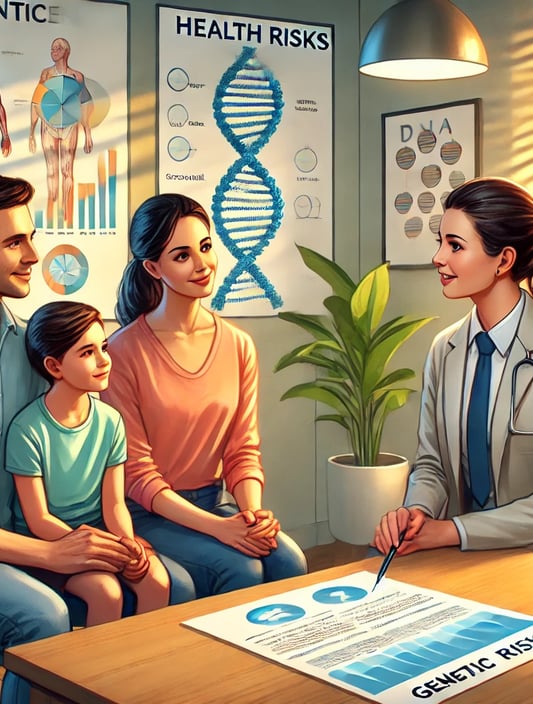Do Genetic Counselors Work with Patients? Exploring Their Role and Impact
Explore how genetic counselors work with patients, guiding them through genetic testing and implications with expertise and empathy.
CAREER ADVICECAREER INFORMATION


Do Genetic Counselors Work with Patients? Exploring Their Role and Impact
Understanding the intricate world of genetics is no small feat. With the rapid advancements in genetic testing and personalized medicine, the role of genetic counselors has become indispensable. These professionals not only interpret complex genetic data but also provide essential support to patients navigating the often-confusing landscape of genetic information.
Genetic counselors play a pivotal role in modern healthcare, bridging the gap between advanced genetic science and patient care. Their primary mission is to help individuals understand and adapt to the medical, psychological, and familial implications of genetic contributions to disease. This article delves into the multifaceted role of genetic counselors, highlighting their direct interaction with patients and the profound impact they have on individual health journeys.
The Role of Genetic Counselors
Genetic counselors are healthcare professionals with specialized training in medical genetics and counseling. They work in a variety of settings, including hospitals, clinics, research institutions, and private practices. Their work is multifaceted, encompassing patient education, risk assessment, and emotional support.
Patient Interaction: A Core Responsibility
Initial Consultation
The patient interaction typically begins with an initial consultation, where the genetic counselor gathers comprehensive family and medical histories. This step is crucial for assessing the likelihood of a genetic condition and determining the appropriate tests.
Genetic Testing
Genetic counselors guide patients through the genetic testing process, explaining the potential benefits, limitations, and risks of various tests. They ensure that patients make informed decisions that align with their values and health goals.




Patient Interaction: A Core Responsibility
Interpreting Test Results
Once the genetic tests are complete, counselors interpret the results, translating complex genetic information into understandable terms. They discuss the implications of the findings, such as the risk of developing certain conditions or passing them on to offspring.
Emotional and Psychological Support
The emotional aspect of genetic counseling cannot be overstated. Learning about a genetic predisposition can be overwhelming, and genetic counselors provide much-needed emotional support. They help patients cope with anxiety, fear, and uncertainty, offering strategies to manage these emotions.
Educational Role
Genetic counselors also have an educational role, ensuring that patients and their families understand the nature of genetic conditions. They explain how these conditions are inherited, what symptoms to watch for, and how to manage or prevent them.


Patient Interaction: Collaborative Care
Working with Healthcare Providers
Genetic counselors often work in collaboration with other healthcare providers, including doctors, nurses, and specialists. They provide vital information that influences the overall care plan, ensuring a holistic approach to patient health.
Referral to Specialists
In cases where genetic conditions require specialized care, genetic counselors refer patients to appropriate specialists. They act as advocates for their patients, facilitating access to the necessary resources and expertise.
Case Study: Real-Life Impact
Consider the case of a young couple planning to start a family. With a history of cystic fibrosis in the family, they sought the advice of a genetic counselor. Through a series of consultations and tests, they learned that both were carriers of the cystic fibrosis gene. The counselor provided detailed information about their options, including preimplantation genetic diagnosis (PGD) and in vitro fertilization (IVF). This information empowered them to make informed decisions about their future family, illustrating the profound impact of genetic counseling.


Genetic counselors are essential players in the healthcare ecosystem, providing critical insights and support to patients navigating the complexities of genetic information. Their work not only enhances patient care but also contributes to the advancement of personalized medicine. As we continue to unlock the secrets of the human genome, the role of genetic counselors will undoubtedly become even more integral to our understanding and management of genetic health.


